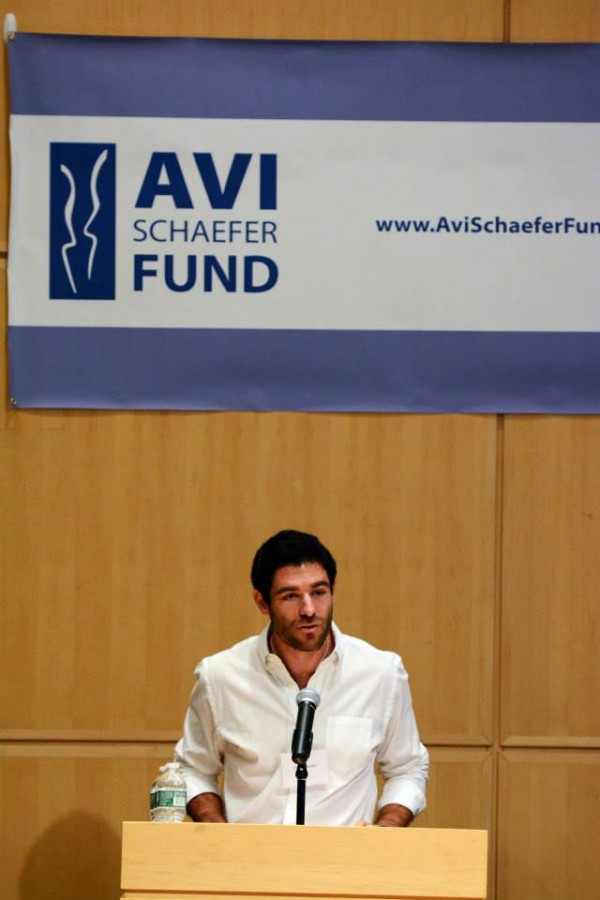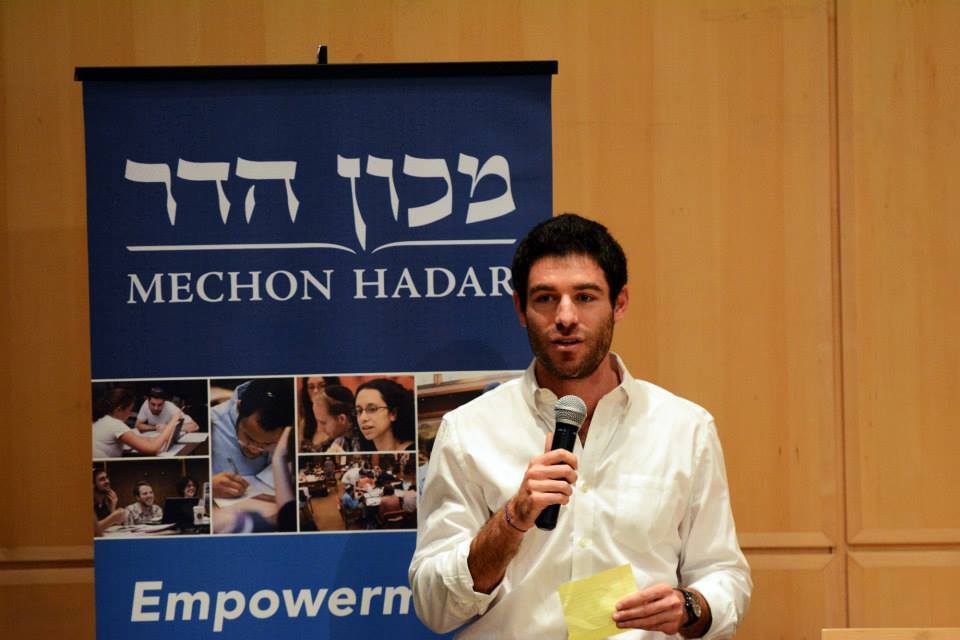
An all-star panel of influential Jewish thinkers, writers, and community leaders addressed the questions of Jews and power Sunday at the Inaugural North American Symposium in Memory of Avi Schaefer at Columbia/Barnard Hillel, sponsored by The Avi Schaefer Fund and Mechon Hadar.
The event was organized in large part by the Avi Schaefer Fund’s executive director, Yoav Schaefer, an undergrad at Harvard University and Avi’s identical twin brother.
After a drunk driver killed Avi in February 2010 at the age of 22, the Fund was established to keep his ideals alive. Friends at Brown University describe the former Israel Defense Forces (IDF) soldier as a peace maker with a love for complexity.
“He believed politics could be a way of inspiring peace in the world,” Yoav said in his opening remarks to the over 150 attendees, many of them young Jews. “Avi’s story inspires us to remember that we must see the world as it is before we can start to change it.”
The program for the day reflected this philosophy. Rabbi Shai Held of Mechon Hadar opened with a lecture on how “religious Zionism” transformed from a pre-State ideology that loathed violence to the extremist tendencies now associated with it. Seven breakaway sessions followed on topics such as separation of shul and state in Jewish history, politics and morality, power between reality and self-perception, and martyrdom and mission.
A panel discussion with Professors Michael Walzer formerly of Princeton and Harvard, David Biale of U.C. Davis, and Leora Batnitzky of Princeton closed out the day. The conversation focused on the need for nuance in understanding the Israel-Palestine conflict.
“For far too many people this is a simple black and white question…when in fact there is tremendous gray and deep moral and political failing on both sides,” Held said.
Yoav thrives on helping other students discover the gray. “Hard thinking on these issues is so often missing from the conversation,” he said. “Students are vital to creating that voice and hosting that dialogue.”
Held believes the differences between how younger and older generations of Jews relate to power is that the younger generation has far less experience of Jewish vulnerability. Jewish youths “can be quite naive in thinking about the challenges Israel faces,” he said. “The lack of a sense of vulnerability often manifests in impatience with (and sometimes even intolerance of) the discourse of parts of the organized Jewish community. I agree with much of that criticism, but I think it needs to be tempered with a sense of humility and respect for the reality that Jewish fear is not always crazy—to say the least.”
But many young Jews in attendance were happy for the opportunity to hear such in-depth, intelligent discussions of the issues.
“They’re giving us tools and sources to conceive of what our role is supposed to be so that we can form our own opinion,” said Danielle Wexler, a friend of Avi’s from Camp Ramah in California. “It’s helping us answer the question, ‘How do you protect yourself and still uphold this concept of being a light unto the nations?’”
For others, like recent Columbia grad Ari Siegel, it just left them wanting more.
“I had never thought of these two issues together before,” he said, “but I don’t think we should be speaking about Jewish power and not talk about Iran or what’s happening with other aspects of world Jewry, but I guess we didn’t have a full day.”
Yoav said he feels getting students to think is the best possible tribute to his brother, even if the work involved has made him live two lives—Ivy League student and foundation director.
Yet he makes it work: In three years he’s built up his foundation to have a presence on two continents, hosted soon-to-be three major symposiums, and a host of other programs.
When asked how he does it all, Yoav just smiled and said, “Finding a balance is important, but balance is overrated. I think my transcript will reflect that I was involved in many activities outside of school.”
Derek M. Kwait graduated from the University of Pittsburgh and is editor in chief of New Voices.

